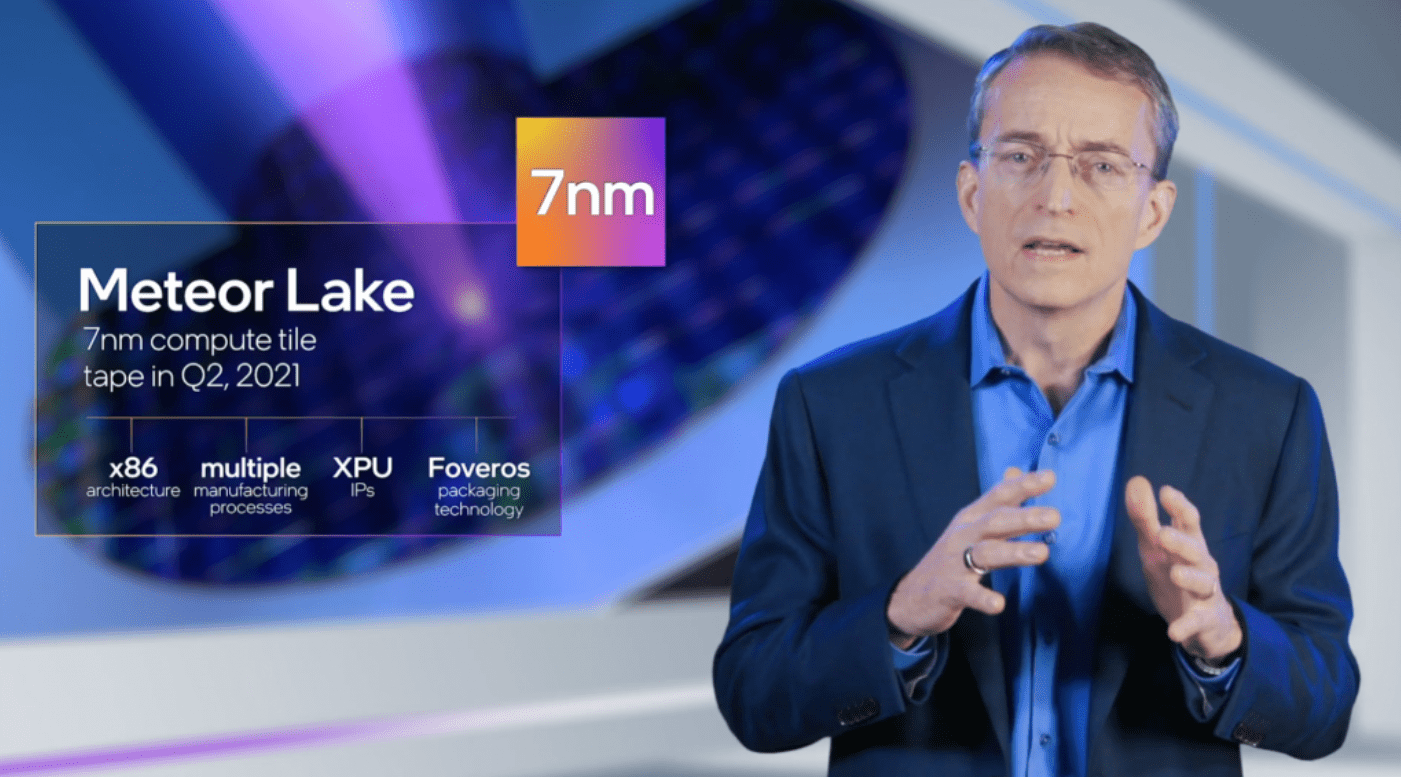Intel has officially confirmed its next-gen 7nm Meteor Lake Client CPUs which will be heading to desktop and mobility platforms in 2023. Intel unveiled that the Meteor Lake will be the first outing of its very own 7nm EUV node in volume which will mark a huge milestone for the company.
Intel Confirms Next-Gen Meteor Lake Desktop & Mobility CPUs Launch in 2023, Will Feature 7nm EUV Process Node & Brand New x86 Modular CPU Architecture
The Intel Meteor Lake lineup is now confirmed to feature a brand new x86 architecture which will be making use of a modular design. Intel will be mix-matching different cores together, similar to their hybrid approach on the upcoming Alder Lake CPUs which will feature both 10nm Golden Cove and 10nm Gracemont cores.
Intel’s Meteor Lake line of desktop and mobility CPUs are expected to be based on a new line of Cove core architecture. This is rumored to be known as the ‘Redwood Cove’ as was reported by MLID (Moore’s Law is Dead) and will be based on a 7nm EUV process node. It is stated that the Redwood Cove is designed from the ground up to be an agnostic node which means that it can be fabricated at different fabs. There are references mentioned that point out to TSMC to be a backup or even a partial supplier for the Redwood Cove-based chips. This might tell us why Intel is stating multiple manufacturing processes for the CPU family.
The Meteor Lake CPUs may possibly be the first CPU generation from Intel to say farewell to the ring bus interconnect architecture. There are also rumors that Meteor Lake could be a fully 3D-Stacked design and could utilize an I/O die sourced from an external fab (TSMC sighted again). It is highlighted that Intel will be officially utilizing its Foveros Packaging Technology on the CPU to inter-connect the various dies on the chip (XPU).
As for what Intel’s Meteor Lake family is going to offer, the family is expected to feature support on the LGA 1700 socket which is the same socket used by Alder Lake processors. We can expect DDR5 memory and PCIe Gen 5.0 support. The platforms will support both DDR5 and DDR4 memory with the mainstream and budget tier options going for DDR4 memory DIMMs while the premium & high-end offerings going for DDR5 DIMMs.
The NVMe support is also expected to be limited to PCIe Gen 4 rather than PCIe Gen 5 which the platform will support. So at the end of the day, we might see the various chipsets and platforms being limited just to their own generation of processors they are introduced with. The launch is still a couple of years away so Intel partners will have ample time to sort out and work on future generation support. Currently, Intel has unveiled that they expect Meteor Lake to tape in around Q2 2021.
Intel Desktop CPU Generations Comparison:
| Intel CPU Family | Processor Process | Processors Cores (Max) | TDPs | Platform Chipset | Platform | Memory Support | PCIe Support | Launch |
|---|---|---|---|---|---|---|---|---|
| Sandy Bridge (2nd Gen) | 32nm | 4/8 | 35-95W | 6-Series | LGA 1155 | DDR3 | PCIe Gen 2.0 | 2011 |
| Ivy Bridge (3rd Gen) | 22nm | 4/8 | 35-77W | 7-Series | LGA 1155 | DDR3 | PCIe Gen 3.0 | 2012 |
| Haswell (4th Gen) | 22nm | 4/8 | 35-84W | 8-Series | LGA 1150 | DDR3 | PCIe Gen 3.0 | 2013-2014 |
| Broadwell (5th Gen) | 14nm | 4/8 | 65-65W | 9-Series | LGA 1150 | DDR3 | PCIe Gen 3.0 | 2015 |
| Skylake (6th Gen) | 14nm | 4/8 | 35-91W | 100-Series | LGA 1151 | DDR4 | PCIe Gen 3.0 | 2015 |
| Kaby Lake (7th Gen) | 14nm | 4/8 | 35-91W | 200-Series | LGA 1151 | DDR4 | PCIe Gen 3.0 | 2017 |
| Coffee Lake (8th Gen) | 14nm | 6/12 | 35-95W | 300-Series | LGA 1151 | DDR4 | PCIe Gen 3.0 | 2017 |
| Coffee Lake (9th Gen) | 14nm | 8/16 | 35-95W | 300-Series | LGA 1151 | DDR4 | PCIe Gen 3.0 | 2018 |
| Comet Lake (10th Gen) | 14nm | 10/20 | 35-125W | 400-Series | LGA 1200 | DDR4 | PCIe Gen 3.0 | 2020 |
| Rocket Lake (11th Gen) | 14nm | 8/16 | TBA | 500-Series | LGA 1200 | DDR4 | PCIe Gen 4.0 | 2021 |
| Alder Lake (12th Gen) | 10nm (ESF) | 16/24? | TBA | 600 Series? | LGA 1700 | DDR5 | PCIe Gen 5.0? | 2021 |
| Raptor Lake (13th Gen) | 10nm (ESF) | 16/24? | TBA | 700-Series? | LGA 1700 | DDR5 | PCIe Gen 5.0? | 2022 |
| Meteor Lake (14th Gen) | 7nm (EUV) | TBA | TBA | 800 Series? | LGA 1700 | DDR5 | PCIe Gen 5.0? | 2023 |
| Lunar Lake (15th Gen) | TBA | TBA | TBA | 900 Series? | TBA | DDR5 | PCIe Gen 5.0? | 2023+ |

